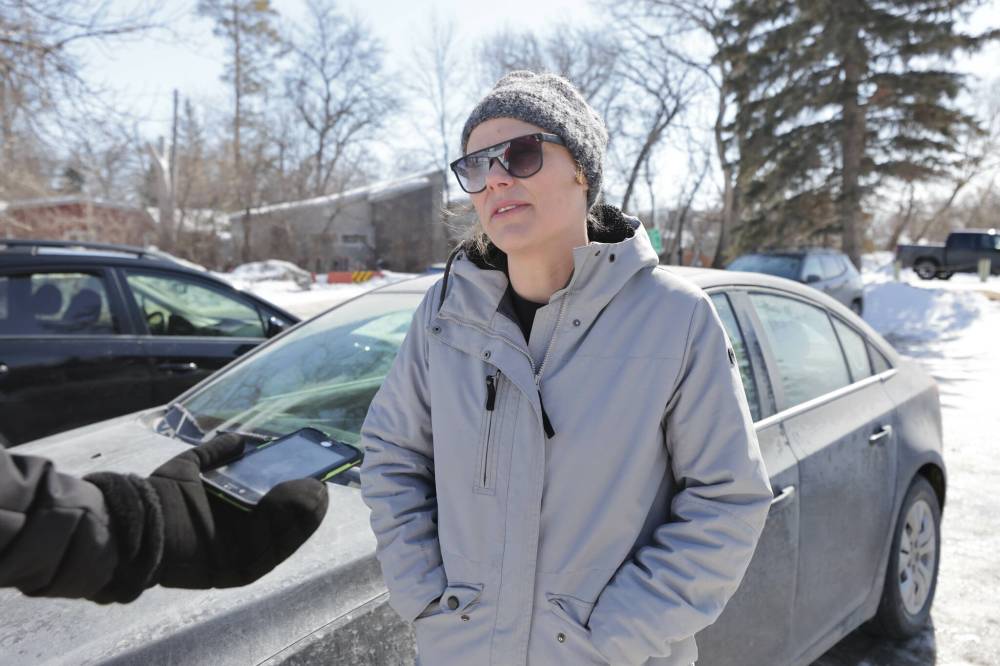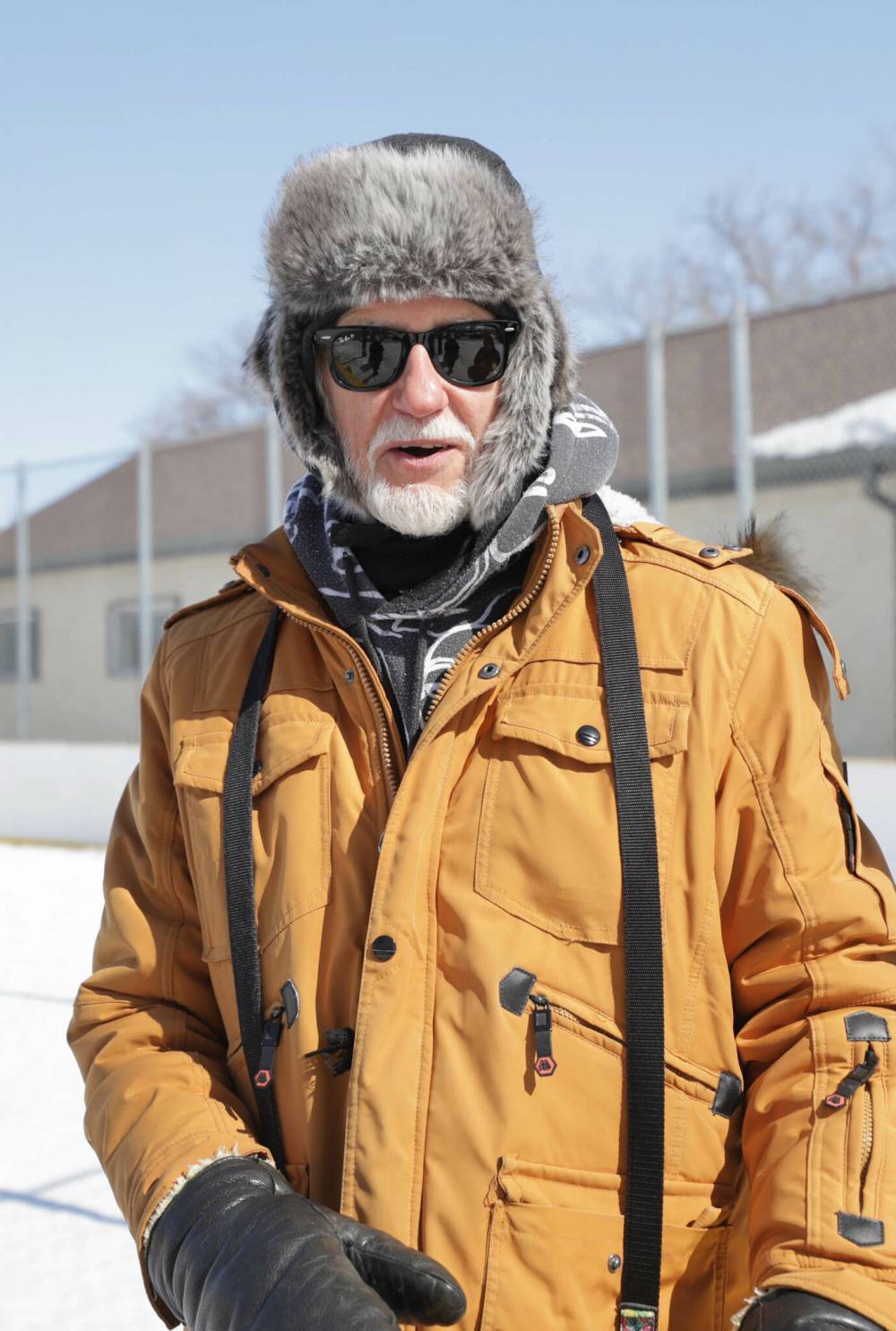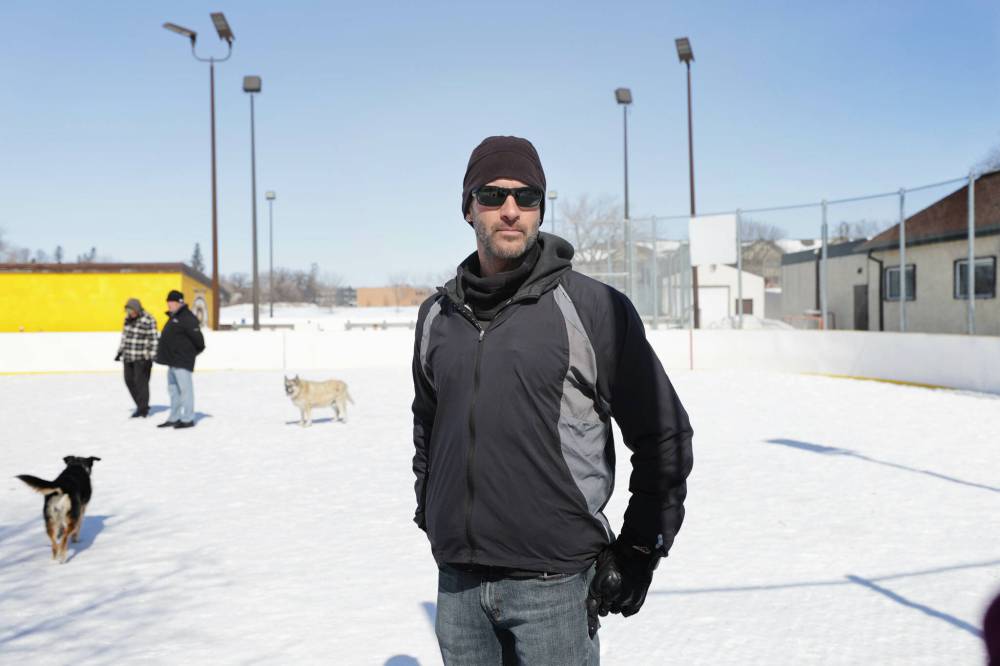Slowing winning fast approval
Early days of pilot program’s reduced speeds finding support from residents in affected neighbourhoods
Advertisement
Read this article for free:
or
Already have an account? Log in here »
To continue reading, please subscribe:
Monthly Digital Subscription
$1 per week for 24 weeks*
- Enjoy unlimited reading on winnipegfreepress.com
- Read the E-Edition, our digital replica newspaper
- Access News Break, our award-winning app
- Play interactive puzzles
*Billed as $4.00 plus GST every four weeks. After 24 weeks, price increases to the regular rate of $19.95 plus GST every four weeks. Offer available to new and qualified returning subscribers only. Cancel any time.
Monthly Digital Subscription
$4.99/week*
- Enjoy unlimited reading on winnipegfreepress.com
- Read the E-Edition, our digital replica newspaper
- Access News Break, our award-winning app
- Play interactive puzzles
*Billed as $19.95 plus GST every four weeks. Cancel any time.
To continue reading, please subscribe:
Add Free Press access to your Brandon Sun subscription for only an additional
$1 for the first 4 weeks*
*Your next subscription payment will increase by $1.00 and you will be charged $16.99 plus GST for four weeks. After four weeks, your payment will increase to $23.99 plus GST every four weeks.
Read unlimited articles for free today:
or
Already have an account? Log in here »
Hey there, time traveller!
This article was published 30/03/2023 (1061 days ago), so information in it may no longer be current.
A pilot project to slow traffic in four neighbourhoods is being met with generally positive reviews from residents in its early stages.
New signs installed during the first two weeks of March reduced the speed limit to 30 km/h from 50 in the Bourkevale and Tyndall Park South neighbourhoods and to 40 km/h from 50 in Richmond West and Worthington.
Shannon Shields, whose son attends school in Bourkevale, said the reduced speed appears to be a good fit for the neighbourhood.
“It’s a very, very busy walking area…. It’s nice to see the official signs go up and it kind of just matches what the community wanted,” said Shields, noting some residents previously posted their own signs that urged drivers to slow down. “It’s nice. It just gives it a little bit of a different vibe that other neighbourhoods don’t have.”
RUTH BONNEVILLE / WINNIPEG FREE PRESS Shannon Shields, whose son attends school in Bourkevale, said the reduced speed appears to be a good fit for the neighbourhood.
Mike McMullen said he hopes the Bourkevale change becomes permanent.
“I think it’s a good idea, especially with a school nearby and all the kids,” said McMullen.
Josh Dyck said he also supports the change in Bourkevale but feels a 30 km/h limit would prove too slow and disruptive for larger residential thoroughfares.
“I would be fine if (on busier residential routes drivers) slowed down to 50. As long as they’re paying attention and being responsible, I think that’s reasonable,” said Dyck. “I understand people’s concerns about slowing down to 30 in certain neighbourhoods.”
Another driver, who did not want her name published, said the focus should not solely be on drivers to improve safety. She said more effort is also needed to teach pedestrians to travel cautiously, such as by looking both ways before crossing a street.
The pilot project is expected to have widespread implications.
“The reduced-speed neighbourhood pilot is the first step in determining the future of speed limits in Winnipeg’s residential areas,” city spokesman Ken Allen said in an emailed statement.
Allen said the test will help determine how reduced maximum speeds affect neighbourhood livability and driver behaviour.
“The pilot will help us determine if changing the posted speed limit changes how fast vehicles actually travel,” he said.
In Bourkevale’s case, many community members urged the city to reduce the speed before the pilot began.
Daevid Ramey, who helped launch the group Bourkevale 30 to advocate for the change, said desire to slow vehicles grew during the pandemic. He said the vast majority of his neighbours felt the standard 50 km/h residential speed limit didn’t mesh well with increased pedestrian and cycling traffic.
RUTH BONNEVILLE / WINNIPEG FREE PRESS Mike McMullen said he hopes the Bourkevale change becomes permanent.
Ramey said the new lower speed limit is a better fit.
“It’s 30 km/h all the time. That makes our neighbourhood safer, it makes it quieter and it’s clear for drivers,” said Ramey.
Many supporters of reduced speed limits believe they make streets safer. Studies show that a pedestrian hit by a vehicle travelling 50 km/h is much more likely to be killed or seriously injured than if the vehicle were travelling 30 km/h.
While noting serious collisions typically occur on busier traffic routes, Coun. Janice Lukes said she supports reduced residential speeds for a separate reason.
“It really will improve neighbourhood livability, (creating) calmer traffic, less noise, a more peaceful neighbourhood,” said Lukes (Waverley West), council’s public works chairwoman.
She said the changes will also offer a potential method to address an “outcry” for traffic-calming measures on many neighbourhood streets.
RUTH BONNEVILLE / WINNIPEG FREE PRESS Josh Dyck said he also supports the change in Bourkevale but feels a 30 km/h limit would prove too slow and disruptive for larger residential thoroughfares.
Lukes, whose ward includes Richmond West, said she received initial pushback on the reduced-speed pilot project in the form of a few dozen emailed complaints, which mostly alleged the program amounts to a tax grab or wastes city money.
However, she said she also received plenty of positive feedback over the last few weeks.
Coun. Shawn Dobson, whose St. James ward includes Bourkevale, said the 30 km/h speed limit makes sense for that area but he doesn’t believe the city should impose it on all residential routes.
“In an isolated area like this, it would probably work but (in some other) residential areas I don’t think it would…. It would be just too slow for (thoroughfares),” said Dobson.
The reduced-speed neighbourhood pilot project is scheduled to last one year. Once it concludes, a city report will recommend next steps.
joyanne.pursaga@freepress.mb.ca
Twitter: @joyanne_pursaga

Joyanne is city hall reporter for the Winnipeg Free Press. A reporter since 2004, she began covering politics exclusively in 2012, writing on city hall and the Manitoba Legislature for the Winnipeg Sun before joining the Free Press in early 2020. Read more about Joyanne.
Every piece of reporting Joyanne produces is reviewed by an editing team before it is posted online or published in print — part of the Free Press‘s tradition, since 1872, of producing reliable independent journalism. Read more about Free Press’s history and mandate, and learn how our newsroom operates.
Our newsroom depends on a growing audience of readers to power our journalism. If you are not a paid reader, please consider becoming a subscriber.
Our newsroom depends on its audience of readers to power our journalism. Thank you for your support.
History
Updated on Thursday, March 30, 2023 11:20 AM CDT: Changed web headline






